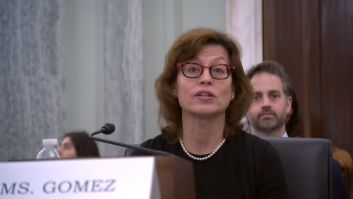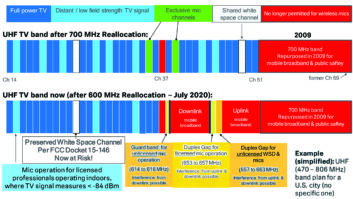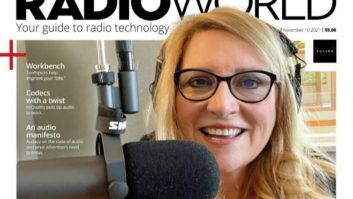Payola controversy heats up
Aug 1, 2002 12:00 PM, By Harry Martin
Changes in the broadcast industry have suddenly made payola a hotissue again. For decades payola has been a sleeper, with radio stationowners vaguely recalling the scandals involving Alan Freed in the earlydays of rock n’ roll. Now Congress is getting numerous requests to takea closer look.
Payola is the acceptance of money, services or anything of value inreturn for broadcasting music or other programming without disclosingon the air that the programming has been paid for and by whom. TheCommunications Act and FCC regulations have prohibited payola fordecades on the theory that the public has a right to know who is tryingto persuade them.
The current concern about payola involves more than the traditionalpayoff to a DJ or program director. Consolidation in the radio industryhas given large radio group owners the leverage to force recordcompanies to pay radio stations before the stations will play theirmusic. But because direct payments are subject to the prohibitionagainst payola, it is alleged by some that group owners may be usingalternative, less direct methods to achieve the same end. For example,one group owner has drawn the wrath of record companies because it alsoholds a dominant position in the music concert business. Recordcompanies claim the owner pressures them to use the company’s concertservices for the record companies’ artists. If they don’t, the artists’songs are not played.
Another allegation is that record companies are relying onmiddlemen, or independent promoters, to make improper payments. Usingthe record companies’ money, these promoters ostensibly pay for advancecopies of stations’ music playlists but, in the process, gain access tothe personnel who create the playlists and, because of the large sumsinvolved, are able to influence music selections. The Commission’sstaff has stated informally, however, that such payments by independentpromoters are legal so long as there is no quid pro quo forairplay.
Various congressmen are leading efforts to stop these practices.Sen. Russell Feingold (D-WI) is planning to introduce legislation thatwould reform the radio industry practices that some say have led tohigher concert ticket prices and homogenized radio programming thatonly features artists whose record companies or agents are willing andable to exercise financial clout. Rep. Howard Berman of California hascalled for a reversal of radio ownership consolidation because it hasconcentrated power in only a handful of conglomerates.
Industry groups such as the RIAA and AFTRA are urging Congress andthe FCC to address this issue.
While nothing may come of these initiatives during this electionyear, complaints from affected businesses, public policy groups, tradeassociations and consumers, particularly when they come in increasingnumbers, ultimately get the attention of Congressional committees andthe FCC. Stations involved in these arrangements or promotions shouldreview their practices with an eye to a future crackdown.
Free time, spectrum fees proposed
Legislation sponsored by Sen. McCain (R-AZ), Sen. Feingold (D-WI),Sen. Toricelli (D-NJ) and Rep. Martin Meehan (D-MA) would require radioand TV stations to provide at least two hours a week of free air timeto candidates and for issue-oriented programs in periods immediatelyprior to elections. At least half of the donated time would have to bein drive time or prime time and none could be during graveyard hours(midnight-6:00 a.m.). Also under the proposed legislation, broadcasterswould be billed a one percent spectrum user fee, the proceeds of whichwould fund the purchase of advertising time by candidates. Candidateswould be issued vouchers which could be redeemed for advertising time.The vouchers would be presented by broadcasters to the government forpayment.
This plan includes elements of the Toricelli amendment, whichproposed free time for candidates, but was defeated during the debateon campaign finance reform last year.
Congressman Fred Upton (R-MI), who chairs the telecom subcommitteein the House, has already announced his opposition to the newMcCain-Feingold initiative.
Martin is an attorney with Fletcher, Heald & Hildreth, PLC.,Arlington, VA. E-mail[email protected].
Dateline:
The next renewal cycle begins March 1, 2003, when stations inWashington DC, Maryland, Virginia and West Virginia must beginbroadcasting their pre-filing renewal announcements. Renewalapplications for stations in those locations will be due June 1,2003.












